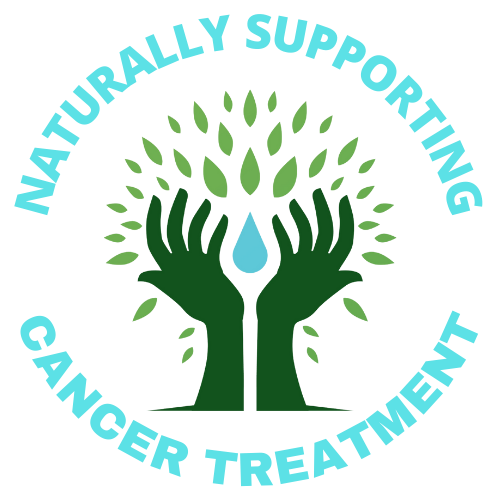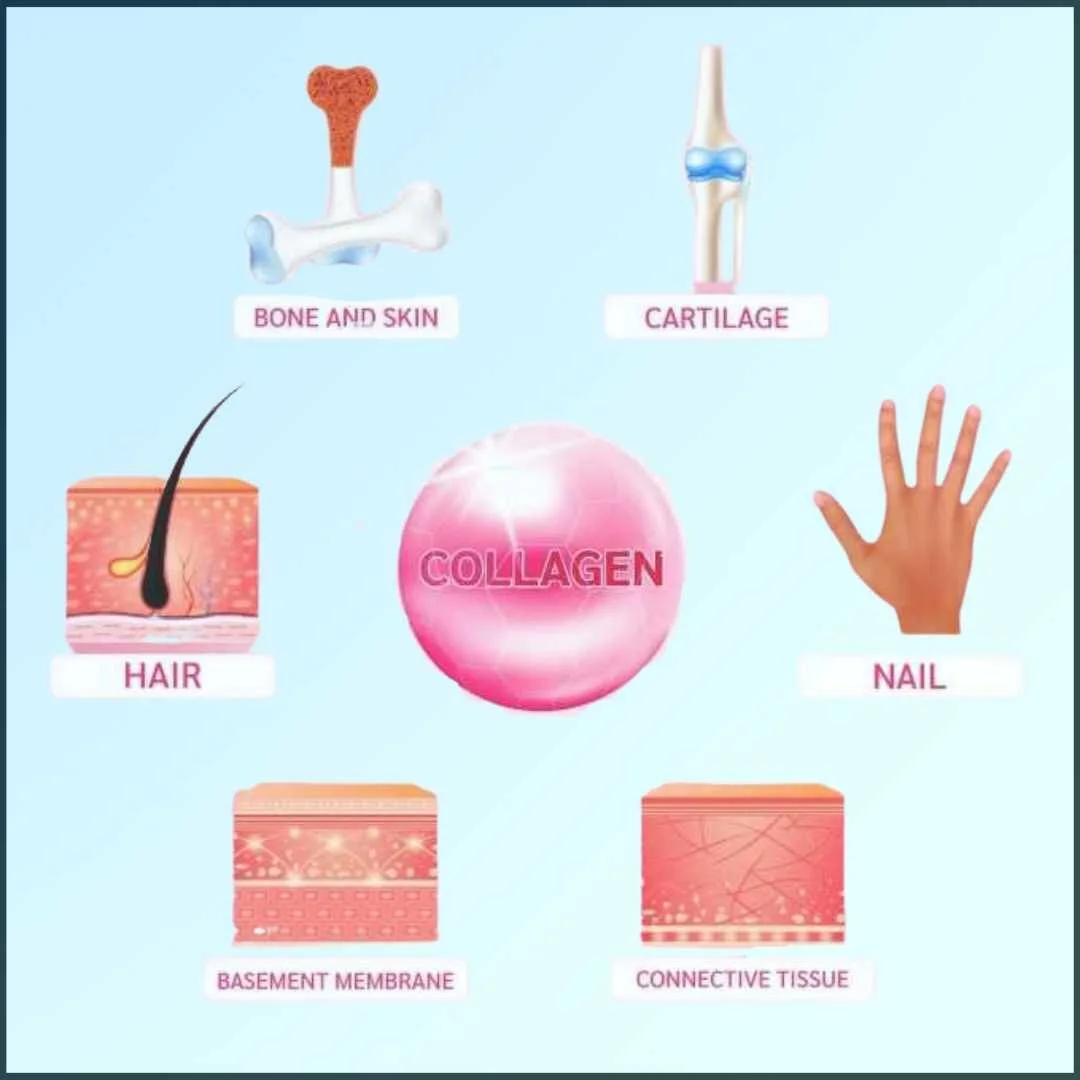Collagen and Cancer: the Science Behind the Claims
I recently saw an article that looked really interesting. It suggested that certain types of collagen could stop cancer cells from becoming malignant. So, I was going to write an article to share that with you. But I went searching for research to back that up, as I always do, and I found that reality was not nearly as clear-cut as that.
Collagen supplements are very popular these days. The health benefits of it include improving your skin elasticity and reducing joint pain.
Collagen is a protein that our bodies produce naturally. We need it to provide structure and support to our skin, tendons, ligaments, and bones. As we age, though, we become less able to create it, and that can lead to wrinkles in the skin and joint stiffness.
The connection between collagen and cancer, though, is much less clear. So, let's look at the evidence.
Common claims linking collagen and cancer
Some researchers found that collagen could have anti-cancer properties. They have discovered that some collagen fragments can inhibit cancer growth and metastasis in animals. The fragments are called collagen-derived anti-angiogenic peptides. These fragments could inhibit the growth of new blood vessels that tumours need to grow and spread.
Other scientists discovered it can promote the growth of cancer cells. This is because collagen is a major component of the extracellular matrix (ECM). The ECM is the scaffolding that holds our cells in place. It's composed of water, proteins (including collagen) and polysaccharides. When tumours grow, they're a complex mix of malignant cells and the ECM.
What scientific research says about collagen and cancer
The first thing to get your head around is that collagen isn't just one protein. There are actually 28 types of it (1), and they differ according to how the molecules are assembled, the cell components that are added, and where they're used in the body.
Type I is the most common. It's densely packed and provides structure to our skin, bones, tendons, and ligaments. This is the one that we think of automatically when we talk about collagen. But the others are just as important.
The research that shows an anticancer link for collagen comes from a study conducted at the Duke Cancer Institute in 2018. They found that cancer cells can remain dormant by forming a collagen barrier around themselves, made of type XVIII collagen. This stopped the cancer cells from interacting with the environment and turning malignant. The researchers suggested that adding type XVIII collagen to cancer cells' environment could stop them from developing. The article recommends doing this by increasing your dietary intake of collagen (2). However, it would be difficult to ensure that you're increasing your type XVIII collagen.
In another paper, they talk about the breakdown of collagen, which releases small protein fragments known as peptides. These peptides often have differing properties from the collagen they came from. Endostatin is a peptide derived from the breakdown of type XVIII collagen. It is an angiogenesis inhibitor, so it stops the growth of new blood vessels, a crucial factor for cancer growth and metastasis. Arresten, canstatin, tumstatin, and vastatin are other peptides that have similar properties. Scientists have extracted and successfully used these peptides to treat cancers (3).
On the other side of the coin, there is a lot of research that suggests that collagen increases the ability of cancer cells to grow and spread.
Some researchers discovered that growing tumours change the collagen in the ECM to one conducive to growth and metastasis. Higher levels of these collagens are associated with poor prognosis in various cancer types, including:
cervical
breast
renal
pancreatic
ovarian
lung
head and neck
gastric
glioma
oesophagus
colorectal cancers.
These tumour-created collagens are useful as cancer markers, making them helpful for diagnosis. Some animal experiments also discovered that collagens are involved in drug resistance (4).
Other researchers found the same results. They suggest they could develop drugs to target the collagens involved (5, 6).
A group of Danish researchers discovered that the tumour-associated collagens changed the immune system. These changes could increase cancer growth and reduce the effectiveness of immunotherapy drugs (7).
The Australian Cancer Research Foundation has an interesting article about collagen type XII and its links to breast cancer metastasis (8). It's an easy read.
One factor that increases the risk of breast cancer is breast density. Those of us who have firmer breasts, caused by high levels of type I collagen, have a higher risk (9).
The potential benefits of collagen in cancer patients
You're probably wondering what benefits there could be to taking collagen when it's involved in cancer progression. The fact is that when you eat collagen, or any kind of protein, it's broken down into its constituent amino acids. The body then uses those to create whatever proteins it needs, which may be collagen or may be something else entirely, depending on the body’s priorities. So you can't cut down on it without removing all proteins from your diet, which is almost impossible and certainly not healthy.
And you need collagen. It's important for our skin, joints, ligaments, nails, hair and bones. And, as you've read above, it is also an important component of the ECM that surrounds all our cells.
During cancer treatment, our skin really suffers. That's partly because we use massive amounts of vitamin C to counter all the free radicals that the treatments create. Vitamin C is crucial to producing collagen, but the free radicals are a higher priority because of the damage that they can do. You should increase your collagen production to repair the skin damage after treatment.
Many people take corticosteroids during their treatment. They affect your skin, bones and joints. Again, collagen is important to help with recovery.
Collagen helps your nails and hair to grow normally again.
If you've had surgery, wound healing is important. Collagen helps with that too.
Natural ways to boost collagen production and overall health
You don't have to take collagen supplements, because your body will make it from the protein that you eat. Foods like eggs, poultry, fish, meat, legumes, and dairy products will all supply the amino acids that you need. You also need nutrients like vitamin C, copper, and zinc. Again, you can get those from food.
One of the best ways to increase the collagen in your diet is by making bone broth. It contains all the amino acids that you need for collagen production. You can use any poultry or meat bones for this. Add water, any vegetables and herbs you like, and a tablespoon or 2 of apple cider vinegar. Then simmer for 1-2 days. The vinegar helps to release collagen from the bones. You won't taste it, but it makes the broth much more nutritious. It's much quicker if you have a pressure cooker or Instant Pot. A few hours in one of those should be enough. Alternatively, it's convenient to use a slow cooker or crock pot because you can leave them unattended. When it's cooked, strain it to remove the solids and store it in glass bowls or jars in the fridge. You can also freeze it successfully. Either drink it hot, spread it on toast (it should jellify when it's cold), or use it as stock in soups and casseroles.
Gelatin, preferably from pasture-raised animals, is also high in collagen. You can use it to make jellies, mousses, or gummies. Most gelatin comes from animal sources, but one company is developing a vegan one, made from pea protein (10).
If you choose to use supplements, remember they're usually made from meat, egg, fish, or shellfish. So, they may not be suitable for vegetarians or vegans, or those on Kosher or Halal diets.
Supplementing might give you a nasty taste in your mouth or digestive problems. You might also get a rash, suffer insomnia, dizziness, or a headache. If you have an undiagnosed allergy to seafood and your supplement is seafood-based, you could go into anaphylactic shock. In rare cases, it can cause liver problems (11).
There's no recommended dosage for collagen supplements. The research studies used doses ranging from 2.5 to 10 grams per day (11).
Conclusion: the complex relationship between collagen and cancer
Collagen seems to be involved in cancer progression and metastasis. But our bodies need it, so it will make it as long as it has the building blocks to do so because of its value to the body.
It is worth stressing that if you read about a study showing any supplement as helpful for cancer, you need to do plenty of research. If I'd taken the first study I found at face value, I might have recommended that you take collagen supplements to keep cancer cells dormant. I always look for corroborating evidence, though, and I recommend you do the same.
My advice is to eat a healthy diet with plenty of protein and vegetables. Avoid getting sun damage because it breaks down collagen. Get sufficient exercise and sleep. Avoid stress and toxins. In fact, if you want to avoid cancers starting and progressing, follow all the advice in my book. If you don't already have a copy, you can find links to all the online stores that stock it in your region by clicking the Buy the Book button below.
References
Kubala J. Collagen: Benefits, side effects, and more. Healthline. March 8, 2023. Accessed October 3, 2023. https://www.healthline.com/nutrition/collagen.
Toole M. The role of collagen in keeping cancer cells dormant: A new frontier in cancer treatment. Healthy Holistic Living. April 28, 2023. Accessed October 3, 2023. https://www.healthy-holistic-living.com/the-role-of-collagen-in-keeping-cancer-cells-dormant-a-new-frontier-in-cancer-treatment/.
Zhang J, Liu J, Zhang H, Wang J, Hua H, Jiang Y. The role of network‐forming collagens in cancer progression. International Journal of Cancer. 2022;151(6):833-842. doi:10.1002/ijc.34004
Necula L, Matei L, Dragu D, et al. Collagen family as promising biomarkers and therapeutic targets in cancer. International Journal of Molecular Sciences. 2022;23(20):12415. doi:10.3390/ijms232012415
Song K, Yu Z, Zu X, Li G, Hu Z, Xue Y. Collagen remodeling along cancer progression providing a novel opportunity for cancer diagnosis and treatment. International Journal of Molecular Sciences. 2022;23(18):10509. doi:10.3390/ijms231810509
Hsu K-S, Dunleavey JM, Szot C, et al. Cancer cell survival depends on collagen uptake into tumor-associated stroma. Nature Communications. 2022;13(1):7078. doi:10.1038/s41467-022-34643-5
Rømer AMA, Thorseth M-L, Madsen DH. Immune modulatory properties of collagen in cancer. Frontiers in Immunology. 2021;12. doi:10.3389/fimmu.2021.791453
Chandler S. Collagen is a key player in breast cancer metastasis. ACRF. August 11, 2022. Accessed October 5, 2023. https://www.acrf.com.au/news/uncategorized/collagen-breast-cancer-metastasis/.
Morris BA, Burkel B, Ponik SM, et al. Collagen matrix density drives the metabolic shift in breast cancer cells. EBioMedicine. 2016;13:P146-P156. doi:10.1016/j.ebiom.2016.10.012
Daniells S. Alberta scientists discover high-protein, plant-based alternative to gelatin. nutraingredients. July 24, 2023. Accessed October 5, 2023. https://www.nutraingredients-usa.com/Article/2023/07/21/Novel-high-protein-plant-based-alternative-to-gelatin-discovered.
Banna J. What are collagen supplements? Verywell Health. December 20, 2022. Accessed October 5, 2023. https://www.verywellhealth.com/collagen-supplements-for-skin-89940.

